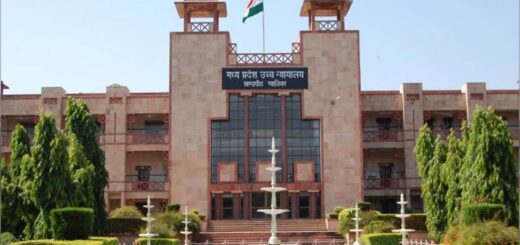The Supreme Court stated that before dismissing serious criminal cases, it is important to have the victim present to check if the settlement is real.

The Supreme Court noted that even if the victim’s affidavit accepting the settlement is available, in serious cases, especially those involving women, it is important to have the victim present, either in person or via video conference. This allows the Court to properly assess if the settlement is genuine and that the victim has no ongoing issues. The Bench, which included Justice Abhay S. Oka and Justice Augustine George Masih, stated, “When petitions are submitted to the High Court under Article 226 of the Constitution of India or Section 482 of the Code of Criminal Procedure, 1973, to dismiss criminal cases of non-compoundable offences due to a settlement, the High Court must ensure that a true settlement exists between the victim and the accused. If the Court is not convinced of a genuine settlement, the petition to dismiss cannot move forward.”
Senior Advocate Indira Jaising represented the Appellant, while Senior Advocate Ruchi Kohli represented the Respondent. A First Information Report was filed by the appellant-informant for offences under Sections 376(2)(N) and 506 of the Indian Penal Code, 1860. Allegations were also made under Section 3(1)(R), 3(1)(w), and 3(2)(5) of the Scheduled Castes and Scheduled Tribes (Prevention of Atrocities) Act, 1989. A charge sheet was submitted against the second respondent-accused for these offences. The second respondent then filed a petition in the High Court to quash the charge sheet based on the claimed settlement between the parties.
The High Court, in its controversial ruling, decided to cancel the criminal proceedings and ordered that the compensation the appellant received under the Atrocities Act be returned to the relevant authority. The appellant argued that the High Court should not have dismissed the criminal case without ensuring her personal appearance and confirming if a settlement existed. She pointed out that she is illiterate and had only used her thumbprint on the affidavits, claiming there was no confirmation from the witness, her lawyer, or the notary that the affidavit’s content was explained to her.
The second respondent claimed that the affidavits were signed by the appellant’s brother. They noted that during a scheduled hearing for the bail application in the High Court, the appellant was present with her husband. The Bench acknowledged the seriousness of the alleged crimes, which included offenses under Section 376(2)(N) of the IPC and the Atrocities Act. The Bench remarked that even if there is an affidavit from the victim indicating a settlement, in serious cases, especially those involving women, it is crucial to ensure the victim’s presence, either in person or via video conference, to verify the authenticity of the settlement and confirm that the victim has no ongoing issues.
In this situation, formalities were especially important because the affidavits showed that the appellant is an illiterate woman. Although both affidavits included her thumbprints, the Bench noted that when illiterate individuals sign such documents, there should typically be a note stating that the contents were explained to them. The Bench observed that since this note was missing, the High Court should have required the appellant to appear in person to ensure proper verification. Since the High Court made its decision without confirming if there was a real agreement between the appellant and the second respondent, the Bench overturned the judgment and sent the case back to the High Court, instructing the appellant to appear on the date set by the Supreme Court.
Cause Title: XYZ v. The State Of Gujarat & Anr [Petition for Special Leave to Appeal (Crl.) No.4748/2024]









